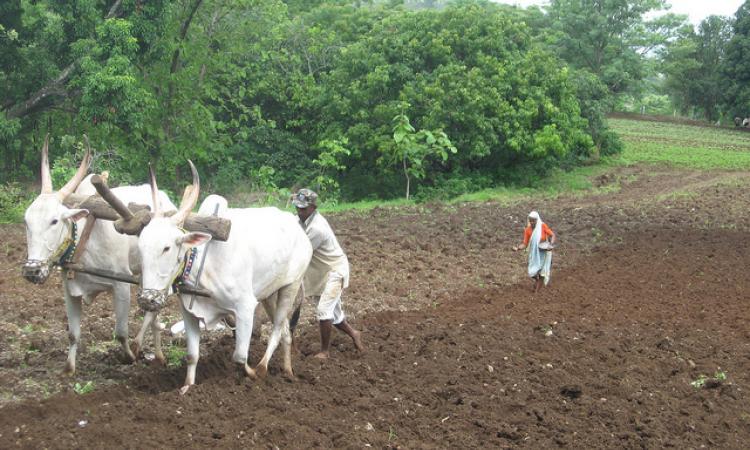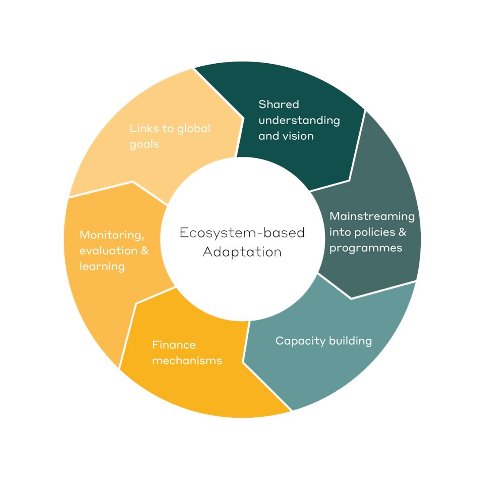
Pune-based NGO, Watershed Organisation Trust (WOTR), in consultation with several experts, from the public, civil society and private sector, arrived at a joint statement on an ecosystem-based adaptation to climate change in Maharashtra in Pune, on February 17th, 2021.
A group of experts and key stakeholders came together in an online state-level consultation on Tuesday, February 16th, to discuss the challenges of climate change, degraded natural resources and other factors affecting rural livelihoods in the rainfed regions of Maharashtra and to develop a roadmap to address them.
The event's outcome was a broad consensus on scaling-up a nature-based and human-centric approach described as "Ecosystem-based Adaptation" or EbA.
The committee of experts, including representatives from public, private, academia and civil society, were unanimous in recognising that EbA offered a holistic approach to fostering resilient livelihoods and healthy ecosystems in rural Maharashtra. A significant result of the event was arriving at a joint statement recognising the importance and the need for upscaling EbA in Maharashtra.
The EbA approach

According to research by WOTR, the EbA approach can significantly benefit the poor, increase food security, increase income and reduce poverty. It is also a low cost and no-regret adaptation option. Case-studies comparing the EbA approach with control villages showed several positive impacts, such as:
• Increased crop diversification
• Improved crop yield of up to 50 percent
• Improved household income by about 40 percent
• Increased forest cover by about 30 percent
• Significant reduction in food shortages during droughts
• Marked reduced distress migration
"Through EbA, our aim is to improve the land and natural resources in Maharashtra and improve the quality of life of the people, especially in rural areas," says Marcella D'Souza, W-CReS Director while sharing the overview of the development process of the Roadmap for EbA in her welcome address.
Senior researcher, Arjuna Srinidhi, outlined the six-point strategy of the Roadmap to include:
- Awareness-raising,
- Mainstreaming EbA into policies & programmes,
- Capacity building,
- Financing,
- Monitoring & Evaluation, and
- Linking to global goals.
He added that "The document intends to inform decision and policymakers at the central and state level, and illustrate pathways for scaling EbA."
WOTR's Managing Trustee, Crispino Lobo, emphasised that the EbA approach was especially critical in Maharashtra where 80 percent of its area was classified as semi-arid and about half of its population depended on agriculture for its livelihoods. He further emphasised that EbA could significantly contribute to several international commitments such as the 2030 agenda of sustainable development (SDGs), the Paris agreement on climate change and the land degradation neutrality commitments under UNCCD.
Relating the distress from climate change to the COVID-19 global pandemic, Mr Alexander Mueller, Managing Director of TMG Research and Ex-Assistant Director-General of the Food and Agriculture Organization (FAO), said: "Ecosystem based Adaptation provides systemic responses to the intertwined crises we are currently facing. The EbA model in Maharashtra has shown that this can be replicated across the world".
Dr Ashok Dalwai, CEO, National Rainfed Area Authority, Government of India and Chairman of the Empowered Body on Doubling Farmers' Income (DFI), emphasised preparing a new paradigm for agricultural research by combining ecosystem-based agriculture, health, nutrition and risk management. He further added "The roadmap for Ecosystem-based Adaptations must include issues related to water, soil, biodiversity, forestry and environmental & social vulnerabilities of communities who are the first victims of climate change".
Speaking on the crucial issue of financing such adaptation actions, G S Rawat, Chief General Manager, NABARD added, "We have aligned our different policies to address the issue of climate change and have increased the financial assistance by over 50 per cent." He further added the Farmer Produce organisation would play a significant role in agriculture interventions. However, it still needed to be backed by a robust productivity system which would have to be ensured by the sustainability of land and water measures.
Concluding the consultation, Mr Jigmet Takpa, Joint Secretary, Ministry of Environment, Forest and Climate Change, Government of India said, "We need to work together in a collaborative way to achieve nature-based solutions so as to make a difference in the country".
The event, organised by Watershed Organisation Trust (WOTR) and the WOTR Centre for Resilience Studies (W-CReS), along with TMG Research gGmbH, Berlin, was the 2nd state-level consultation in the Climate-SDGs Integration Project funded by International Climate Initiative (IKI) of the Federal Ministry for the Environment, Nature Conservation, Building and Nuclear Safety (BMUB), Germany.
The workshop recording can be accessed here
Read more on the Ecosystem based adaptation approach here
/articles/roadmap-nature-based-and-climate-resilient-livelihoods-maharashtra